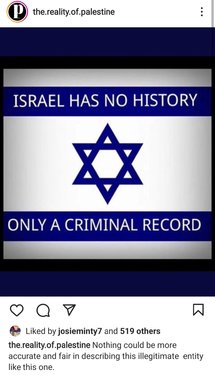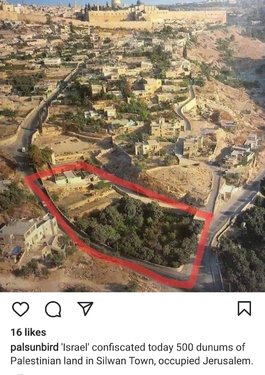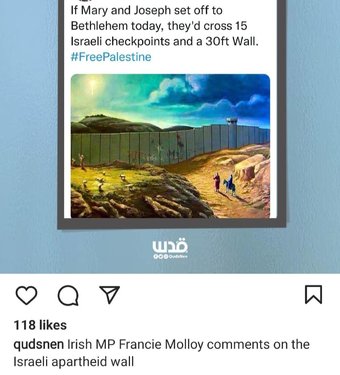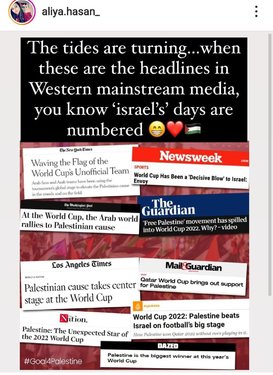-
Posts
8,466 -
Joined
-
Days Won
773
Content Type
Profiles
Forums
Events
Everything posted by ummtaalib
-
By Shaykhul-Hadīth, Hadrat Mawlānā Muhammad Saleem Dhorat dāmat barakātuhum Who is the Clever One? Rasūlullāh sallallāhu ‘alayhi wa sallam said: A Sahābī once asked Rasūlullāh sallallāhu ‘alayhi wa sallam, ‘Who is the cleverest and most far-sighted of the people, O Rasūlullāh?’ Rasūlullāh sallallāhu ‘alayhi wa sallam replied: Temporary World Such people are the clever ones because they prepare for the life which is eternal and everlasting. To help us better comprehend this, Imām Ghazālī rahimahullāh presents a striking example. He says, ‘If the whole world was filled with corn or chickpea seeds, and a bird was to take one seed after a million years, then another seed after another million years, and it continued to take one seed after every million years in this manner, then a time will come when the seeds will all finish, but the Hereafter will not end; it is everlasting.’ Allāh ta‘ālā is Al-Bāqī (The Eternal); He will never perish. Since Allāh ta‘ālā is Eternal, anything we carry out for His Pleasure also becomes eternal, i.e. its reward will be everlasting. Anything associated to us and this world will perish; and anything associated to Allāh ta‘ālā or the Ākhirah will remain forever. Allāh ta‘ālā states: The paltry benefits of this world are nothing in comparison to the life Hereafter, both in quality and quantity. Allāh ta‘ālā states: Pleasures of the Dunyā We should not let the superficial pleasures and enjoyment of this world deceive us and deprive us from the everlasting pleasures of the Hereafter. Every unlawful enjoyment brings with it pain and grief in this world and more in the Hereafter. Due to weakness in our Īmān, we sometimes become envious of the lavish lives of those who freely disobey Allāh ta‘ālā, and stare with desirous eyes at what they have. What we fail to realise is that we only see them when they are in the public sector, where every person feels the need to project a much decorated and glamourous image of himself. What is hidden behind their smile is known only to them and Allāh ta‘ālā. We do not see what they are going through behind closed doors, during the night or when alone. Similarly, we do not know what is to happen to them in the near future or when they reach old age. Peace and tranquility are taken away from such people and they face much hardship in this very world, and in the Hereafter the fire of Jahannam awaits them. Allāh ta‘ālā states in the Glorious Qur’ān: Despite having all the recourses of pleasure, they are restless and find no peace at heart because true peace and contentment are directly from Allāh ta‘ālā and come only through His remembrance and obedience to Him. Allāh ta‘ālā states in the Glorious Qur’ān: Those who obey Allāh ta‘ālā are granted peace and traquility in this world before the everlasting success of the Hereafter. Allāh ta‘ālā states: Thus, those who choose the dunyā and make it their sole objective suffer in this world and the next, whilst those who give preference to the Ākhirah by obeying Allāh ta‘ālā and restraining their nafs from unlawful pleasures receive the best of both worlds. They enjoy true peace in this world, and the everlasting and unimaginable pleasures of the Hereafter. Allāh ta‘ālā says in a Hadīth Qudsī: Two Choices We now have two choices. The first choice is that we freely follow our unlawful desires and 'enjoy' the so-called pleasures of this world at the cost of our Hereafter. The second choice is that we sacrifice the paltry unlawful pleasures of this world in order to secure the everlasting bliss of the Hereafter. Which choice will a person of average intellect opt for? Muftī Muhammad Shafī‘ ‘Uthmānī rahimahullāh who was an ‘Ālim of a very high repute, the author of the well-known tafsīr, Ma‘āriful-Qur’ān, gives a beautiful example to help us understand this choice better. He says, ‘A person is given the choice between two houses; a luxurious palace with all comforts and facilities and a small home with lack of facilities. Then he is told that the palace will remain in his possession for a duration of ten years after which one will have to vacate, whilst the small home is for him to keep permanently. Which of the two will an intellectual person opt for? Surely an intellectual person will understand that choosing the palace will leave him homeless after ten years, whilst the small home despite being far less comfortable will become a permanent residence for him, his wife and his children. Thus, he will give preference to the smaller home.’ It is worth noting that in this example the temporary abode is far better in quality and comfort than the permanent abode, yet a person will still choose the latter. If a person prefers the small home despite having far less facilities and comforts for the sole reason that it is a permanent abode, then why would the faculty of intellect not guide a person to give preference to the Ākhirah which is permanent and far better too? Will Life become Dry? Giving preference to the Ākhirah is not to say that our lives will become dry and that we will enjoy no pleasure in the worldly life at all. No. One will continue to enjoy his life by benefitting from the scores of lawful pleasures Allāh ta‘ālā has created. What Allāh ta‘ālā has made permissible is far more in number than what Allāh ta‘ālā has made impermissible. From the items available to eat, the halāl far outweigh the harām. From the things we can wear, see, hear and touch, the halāl are far more than the harām. Thus, a pious Muslim is not deprived of pleasure. We are only asked to refrain from the utterly greedy act of indulging in harām even after Allāh ta‘ālā has granted us so many halāl ways to enjoy. May Allāh ta‘ālā grant us the tawfīq to make the right choice and give preference to the Ākhirah over this dunyā, and as a result, enjoy a tranquil worldly life and acquire the eternal success and pleasure of the Ākhirah. Āmīn. © Riyādul Jannah (Vol. 31 No. 1, Jan 2022)
-
Gunman kills 7 people in occupied East Jerusalem attack Shooting follows a deadly Israeli raid in the occupied West Bank’s Jenin refugee camp that killed nine Palestinians. A gunman has killed seven people near a synagogue in an Israeli settlement in occupied East Jerusalem before being fatally shot, in an escalation of violence following a deadly Israeli military raid in the West Bank a day earlier. Al-Jazeera
-
أَصْبَحْنَا وَأَصْبَحَ الْمُلْكُ لِلّٰهِ وَالْحَمْدُ لِلّٰهِ ، لَا إِلٰهَ إِلَّا اللّٰهُ وَحْدَهُ لَا شَرِيْكَ لَهُ ، لَهُ الْمُلْكُ وَلَهُ الْحَمْدُ ، وَهُوَ عَلَىٰ كُلِّ شَيْءٍ قَدِيْرٌ ، رَبِّ أَسْأَلُكَ خَيْرَ مَا فِيْ هٰذَا الْيَوْمِ وَخَيْرَ مَا بَعْدَهُ ، وَأَعُوْذُ بِكَ مِنْ شَرِّ مَا فِيْ هٰذَا الْيَوْمِ وَشَرِّ مَا بَعْدَهُ ، رَبِّ أَعُوْذُ بِكَ مِنَ الْكَسَلِ وَسُوْءِ الْكِبَرِ ، رَبِّ أَعُوْذُ بِكَ مِنْ عَذَابٍ فِي النَّارِ وَعَذَابٍ فِي الْقَبْرِ We have entered the morning and at this very time the whole kingdom belongs to Allah. All praise is due to Allah. There is no god worthy of worship except Allah, the One; He has no partner with Him. The entire kingdom belongs solely to Him, to Him is all praise due, and He is All-Powerful over everything. My Lord, I ask You for the good that is in this day and the good that follows it, and I seek Your protection from the evil that is in this day and from the evil that follows it. My Lord, I seek Your protection from laziness and the misery of old age. My Lord, I seek Your protection from the torment of the Hell-fire and the punishment of the grave. Aṣbaḥnā wa aṣbaḥa-l-mulku li-llāh, wa-l-ḥamdu li-llāh, lā ilāha illa-llāhu waḥdahū lā sharīka lah, lahu-l-mulku wa lahu-l-ḥamd, wa huwa ʿalā kulli shay’in Qadīr, Rabbi as’aluka khayra mā fī hādha-l-yawmi wa khayra mā baʿdah, wa aʿūdhu bika min sharri mā fī hādha-l-yawmi wa sharri mā baʿdah. Rabbi aʿūdhu bika mina-l-kasali wa sū’i-l-kibar, Rabbi aʿūdhu bika min ʿadhābin fi-n-nāri wa ʿadhābin fi-l-qabr. ʿAbdullāh b. Masʿūd (raḍiy Allāhu ʿanhu) narrates that when the Messenger of Allah ﷺ used to enter the morning, he would say [the above]. (Muslim 2723) lifewith allah
-
-
A famous book writer sat in his study. He took out his pen and began to write: “Last year, I had surgery to remove gallstones. I was bedridden for a long time. In the same year, I turned 60 and was retired … quitting a company that I loved so much. I had to leave the job I've been doing for 35 years. That same year I was abandoned by my beloved mother who passed away. Then, still in the same year, my son failed his final medical exam because of a car accident. Repair costs from the car damage marked the peak of bad luck last year.” At the end he wrote: *What, what a bad year!* The writer's wife entered the room and found her husband who was sad and pensive. From behind, the wife saw the husband's writing. Slowly she backed away and left the room. 15 minutes later she came back in and put down a piece of paper with the following words: “Last year, my husband finally managed to get rid of his gallbladder which had been making his stomach hurt for years. That same year, I am grateful that my husband was able to retire in a healthy and happy state of mind & body. I thank God he was given opportunity to work and earn for 35 years to support our family. Now, my husband can spend more of his time writing, which has always been his hobby. In the same year, my 95 year old mother-in-law, without any pain, returned to God in peace. And still in the same year, God protected our son from harm in a terrible car accident. Our car was seriously damaged by the accident, but my son survived without any serious injuries. In the last sentence his wife wrote: *Last year was a year full of extraordinary blessings from God, and we spent it full of wonder & gratitude.* The writer smiled with emotion, and warm tears flowed down his cheeks. He was grateful for a different point of view for every event he had gone through the past year. A different perspective of the same events now made him joyful. Dear Family and Friends, In this life we must understand that it is not happiness or joy that makes us grateful. It is *gratitude that makes us happy & joyful*! Practice seeing events from a positive point of view and keep envy away from your hearts. "We can complain because rose bushes have thorns, or rejoice because thorn bushes have roses_.”
-
Worried About Your Sustenance? By Shaykhul-Hadīth, Hadrat Mawlānā Muhammad Saleem Dhorat dāmat barakātuhum Recently, I was approached by a concerned brother who had been facing some difficult times with regards his provision and sustenance. This is something that many of us face at some time in our lives. Naturally, when we are in this situation, we begin to panic and look for ways out. Some bear the situation remaining within the laws of Sharī'ah and with patience make it through, whilst others fail in this test from Allāh ta'ālā and take to prohibited means to try to solve their problems. So, when the brother asked the question, I pondered for a while and the following advices, all based on the Qur'ān and hadīth, came to mind: 1. At such difficult times it is paramount to adopt taqwā, which is to stay away from each and every sin. Remember, what is thought of to be a tough financial situation will differ from person to person, but in these circumstances it is necessary that we stay compliant with the Commands of Allāh ta'ālā. Both the dos and don'ts commanded by Allāh ta'ālā have to be adopted. Salāh, Sawm, Zakāh, Hajj and all farā'id must be performed. Similarly, we must refrain from all sinful activities. In return for this adoption of taqwā, Allāh ta'ālā has promised that He will see to our needs: 2. A second point to keep in mind is to make istighfār (seek forgiveness) abundantly. A person should look towards his own misdeeds and take them to be the reason for finding himself in the predicament he is in. He should turn to Allāh ta'ālā and repent. Sometimes, such circumstances are caused by Allāh ta'ālā in order to make His servant turn towards Him. Such is the Mercy of Allāh ta'ālā! The Prophet sallallāhu 'alayhi wasallam has said: 3. Another point is to ensure that we keep our transactions free from sin. For this, we must consult the 'Ulamā, learn from them in regards to what is halāl and what is harām and act accordingly. Any transaction which is contrary to the teachings of Allāh ta'ālā and His Messenger sallallāhu 'alayhi wasallam will be devoid of barakah (blessings); therefore, no matter how great the profit or benefit seems, it will soon disappear. The Prophet sallallāhu 'alayhi wasallam said: Similarly, the Prophet sallallāhu 'alayhi wasallam also says: 4. Nowadays, many people look for wazā'if (the recitation of certain verse(s), name(s) of Allāh ta'ālā etc. a certain number of times to fulfil a particular need) to solve their problems. Whereas, within the boundaries of Sharī'ah, this is permissible, there can be no better solutions than those shown by the Prophet sallallāhu 'alayhi wasallam regarding whom Allāh ta'ālā says: • In a hadīth the Prophet sallallāhu 'alayhi wasallam mentions that whoever recites the following 100 times between subh sādiq and Fajr salāh, wealth shall come to him unwillingly and humbled. (Ihyā) سُبْحٰنَ اللهِ وَبِحَمْدِهٖ سُبْحٰنَ اللهِ الْعَظِيْمِ، أَسْتَغْفِرُ اللهَ • In another hadīth, the Prophet sallallāhu 'alayhi wasallam passed by a person who was dishevelled and worried, at which the Prophet sallallāhu 'alayhi wasallam told him to recite the following words through which his worry and poverty would go away. The words were: تَوَكَّلْتُ عَلَى الْحَيِّ الَّذِيْ لَايَمُوْتُ ، وَالْحَمْدُ لِلّٰهِ الَّذِيْ لَمْ يَتَّخِذْ وَلَداً ، وَّلَمْ يَكُنْ لَّهٗ شَرِيْكٌ فِي الْمُلْكِ ، وَلَمْ يَكُنْ لَّهٗ وَلِيٌّ مِّنَ الذُّلِّ وَكَبِّرْهُ تَكْبِيْراً 5. Read Sūrah Al-Wāqi'ah every night: 6. Imām At-Tabarānī rahimahullāh has quoted a hadīth in which the Prophet sallallāhu 'alayhi wasallam has said: 7. We should constantly make du'ā to Allāh ta'ālā, for in du'ā lies the solution to all our problems. The Prophet sallallāhu 'alayhi wasallam has said: One important point to ponder upon here is that to be afflicted with financial difficulties is not an everlasting problem, for tomorrow we may be relieved; either our problem may ease or we may not live for long. Why then do we have so much concern for this temporary issue? If a solution is guaranteed, we will be prepared to do anything. On the other hand, the life hereafter is inevitable and definite, but we do not have the same concern. How surprising it is that for something inevitable we have no concern, yet that which is uncertain occupies our hearts and minds all the time. Surely, we have set our priorities incorrectly! © Islāmic Da'wah Academy
-
Israel’s Ben-Gvir enters Al-Aqsa: Why was it seen as provocative? The far-right Israeli national security minister had been warned by Israel’s former PM that his move would spark violence. Israel’s far-right national security minister Itamar Ben-Gvir entered the Al-Aqsa Mosque compound in occupied East Jerusalem in a move Palestinians called a “deliberate provocation”, ignoring warnings from Israeli politicians that his appearance at the holy site would inflame tensions. Ben-Gvir said he would not “surrender to the threats of Hamas” after the Palestinian group warned that his entrance to the site on Tuesday would cross a “red line”. The minister, widely regarded as a provocateur, has previously called for the displacement of Palestinians. Let’s take a look at why his entrance to Al-Aqsa Mosque compound is so controversial: What is the status of Al-Aqsa? The Al-Aqsa Mosque compound (also known as al-Haram al-Sharif by Muslims and the Temple Mount by Jews) is a wide, walled plaza in the heart of the Old City in occupied East Jerusalem. It incorporates the Al-Aqsa Mosque and the Dome of the Rock. It is considered holy by both Muslims and Jews and is a Palestinian national symbol. One of the walls of the compound, the Western Wall – also referred to as the Wailing Wall or the Buraq Wall – is a holy site for Jewish prayer. Jews pray undisturbed on the side of the wall that is outside the compound. Israel has occupied East Jerusalem since 1967. The occupation is illegal under international law. The compound has been managed continuously by Muslims, under a waqf (religious endowment), for hundreds of years. The Jordanian-funded waqf has continued to administer the site since 1967, while Israel has security control. Under a longstanding agreement, the status quo of the site only permits Muslim prayer, and visits from non-Muslims are only permitted at specific times. Why is the site so sensitive for Palestinians? As a site that carries religious and national significance, Palestinians are alert to any attempts to change the status quo of Al-Aqsa. The increased number of ultranationalist Jews entering the compound, and the frequent storming of the site by Israeli security forces, including inside the prayer hall of Al-Aqsa Mosque, has increased Palestinian anger. Confrontations between Israeli security forces and settler groups on one side and Palestinians on the other have occurred numerous times over the past two years, particularly following storming incidents in Al-Aqsa. Palestinians see Al-Aqsa as one of the few national symbols that they retain some element of control over. They are, however, fearful of a slow encroachment by Jewish groups akin to what has happened at the Ibrahimi Mosque (Cave of the Patriarchs) in Hebron, where half of the mosque was turned into a synagogue after 1967, which has gradually increased in size. Palestinians are also worried about far-right Israeli movements that seek to demolish the Islamic structures in the Al-Aqsa Mosque compound and build a Jewish temple in their place. Do Jews pray at Al-Aqsa? Traditionally, ultra-Orthodox Jews, including senior religious authorities, have considered it religiously impermissible to enter the Al-Aqsa Mosque compound, let alone pray in it. This is because they consider the site too holy for people to step on. Ultranationalist Jews have increasingly attempted to pray in the compound, despite it being forbidden by Israeli authorities. Last May, an Israeli court upheld the ban after it was contested by three Jewish youths who had received a restraining order after praying at the site. However, Israeli security forces have often turned a blind eye to “silent” prayer by Jews being escorted by police at Al-Aqsa. What does Ben-Gvir want? Ben-Gvir is part of Israel’s “Religious Zionist” ideological movement, which emerged in an attempt to reconcile religious Jews and Zionism. Many religious Jews were suspicious of Zionism’s secular influences. He is also part of a growing movement in Israel that has challenged the traditional Jewish restrictions on prayer at Al-Aqsa and instead wants to encourage it. As a member of Israel’s far right, Ben-Gvir was seen by many Israeli politicians as too extreme to work with, but Prime Minister Benjamin Netanyahu was forced to seek allies from the far right, including Ben-Gvir, when many in Israel’s political mainstream opposed him. Ben-Gvir’s position in government, which includes control over the Israeli police, highlights the strength of the “Religious Zionist” movement, which wants to maintain and expand Israeli control over the occupied Palestinian territory. Ben-Gvir has been convicted for racist incitement against Arabs and support for “terrorism”. He has also expressed support for Baruch Goldstein, an Israeli American who killed 29 Palestinians at the Ibrahimi Mosque in 1994. What will the Palestinian reaction be? Hamas spokesman Hazem Qassem told Al Jazeera that Ben-Gvir’s “storming” of Al-Aqsa was “a continuation of the Zionist occupation’s aggression against our sanctities and its war on their Arab identity”. While general calls for a Palestinian response were made, no group has specifically called for attacks on Israeli targets yet. Analysts believe that Hamas and Fatah are keen to avoid an armed confrontation with Israel, with Netanyahu in a similar position. However, tensions in the occupied West Bank in particular could escalate, amid continued Israeli raids that made 2022 the deadliest year for Palestinians in the territory since 2006, and the growth of new armed Palestinian groups. Israel’s opposition leader and former prime minister Yair Lapid had warned on Monday that Ben-Gvir’s planned entrance to the compound would lead to violence, and called it a “deliberate provocation that will put lives in danger”. Al-Jazeera
-
By Shaykhul-Hadīth, Hadrat Mawlānā Muhammad Saleem Dhorat dāmat barakātuhum Having just completed a year, the ‘New Year’ is seen and heard all around us. However, the question remains as to what should be a Muslim’s take on these events. Upon the passing of a year, the common trend is to celebrate; people have birthday parties, wedding anniversaries, etc. However, in certain spheres this is not the case; take the example of a businessman who at the end of the (financial) year will first take stock of the past year. He will meticulously go through the accounts of the past year taking into account every single penny. He will check to see if he made a profit, and if so then how can he make more in the coming year. He will check his expenses: where did he spend his money? Can he make further savings? All of this is done so that he can make the coming year more profitable than the one that has passed. This should be the case at the end of the year in every Muslim’s life for we too have been sent to this world as businessmen with the commodity of time; which is life. We will have to one day give account for every second in the Court of Allāh ta‘ālā, when our books of deeds shall be presented. We will bring forth a book for him that he will find wide open, (and We will say to him) ‘Read your book. Enough are you today to take your own account.’ (17:13-14) Sayyidunā ‘Umar radhiyallāhu ‘anhu, emphasising the same, says: Take stock of your own lives before Allāh ta‘ālā reckons you. And assess yourself before you are assessed by Allāh ta‘ālā. And prepare yourselves for the great summoning. It is our belief that on the Day of Judgement, Allāh ta‘ālā will reckon us for everything that we did in the world. On the day when everybody shall find present before him whatever good he did and whatever evil he did, he will wish there would have been a wide space between him and that (day). (3:30) No matter how minute or trivial an act we did, we will find that it is present in our book of deeds. So, whoever does any good act (even) to the weight of a particle will see it. And whoever does evil (even) to the weight of a particle will see it. (99:7-8) This will be to the extent that in awe people will say: ‘Woe to us! What a book is this! It has missed nothing, minor or major, but has taken it into account.’ Thus they will find whatever they did present before them, and your Lord will not wrong anyone. (18:49) We need to keep this reality in mind and spend our lives with regular reflection on our actions with Murāqabah and Muhāsabah. Murāqabah means to supervise and oversee oneself to ensure that he/she stays away from disobediences to Allāh ta‘ālā and spends every moment seeking the Pleasure of Allāh ta‘ālā. Muhāsabah means taking account of one’s activities at the end of the day, week and year; and thanking Allāh ta‘ālā for the ability to have performed any good actions and seeking forgiveness for any sins one may have committed. Inshā’allāh, if this is adhered to, then we will see a great change in our lives. We will find ourselves spending every second of our lives with great care. The end of a year is a time to reflect and say to yourself, ‘Another year from my precious life has passed. Who knows how many more years, if any, I have remaining?’ Let us spend them in those avenues that bring the pleasure of Allāh ta‘ālā and stay away from those things that bring His displeasure, so that we can meet Allāh ta‘ālā in a state that He is pleased with us. © Riyādul Jannah
-
-
-
What is Islam? What is ISLAM (A4 Document)-1.pdf
-
New Israeli government Let’s be clear: Israel’s incoming extremist government should alarm everyone for its overt racism against Palestinians. But the continuation of Israel’s violent apartheid rule is nothing new—and neither is the fact that Palestinians deserve their basic rights and freedom.
-
Every person’s idea of the ideal holiday is different. Some people find the idea of caravanning across the country to be appealing, while others are attracted by the concept of camping in the wilderness. Others may feel inclined to recline on a quiet, picturesque beach, while there are yet others who spend their holidays commuting from mall-to-mall, in search of the best bargains and most extraordinary deals. Regardless of the form in which the holiday is enjoyed, the underlying concept is the same – to find happiness and joy. However, the reality of the matter is that nothing in this world is stable, constant, reliable and predictable. How many people embarked on their dream holiday, only to have a nightmare unfold? Tsunamis… Delayed flights… Interrogation or detainment by immigration officials… Lost luggage… Inclement weather… Being mugged or robbed… Losing passports… Even if one’s holiday does not deteriorate into a horror story, the fact still remains that when the holiday is over, all that remains are fading memories and a few mementos. There is no lasting happiness achieved through a holiday, which is why before one holiday can even end, the next holiday is already anticipated and planned. Now, what if someone was to tell you that you can LIVE EVERY DAY LIKE A HOLIDAY? You would probably think that they were joking, but the reality is that you absolutely can! Furthermore, it won’t cost you a single cent! To find happiness and joy, we must identify the source of happiness and joy. We tend to think that good food, luxury items and clothing, attractive scenery, exotic holiday destinations, etc. are the sources of happiness. However, we could not be further from the truth. The true source of happiness and joy is Allah Ta‘ala, and the key to acquiring this happiness is to attach and link our hearts to Allah Ta‘ala. Everything else that we attach our hearts to will either depart from us, or we will depart from it. However, Allah Ta‘ala is the Eternal Being who is constant and unchanging. If we attach our hearts to Him, our hearts will ‘live stream’ His love with such speed that there will never be a ‘buffer’. The ecstasy and joy that we will perceive will be such that every luxury of the world which we ever enjoyed will pale and seem insignificant in comparison. Ebrahim bin Ad-ham (rahimahullah) was once the king of an empire, living in absolute luxury. However, he voluntarily ‘divorced the world’, left his kingdom and dedicated his life to the worship of Allah Ta‘ala. On one occasion, Ebrahim bin Ad-ham (rahimahullah) ate a simple meal of dried bread, and then thanked Allah Ta‘ala exclaiming, “Alhamdulillah!” Then, using his hands, he scooped some water from a river and drank it, also thanking Allah Ta‘ala exclaiming, “Alhamdulillah!” After consuming this simple meal, which most people would struggle to swallow, let alone enjoy, he remarked, “If the kings and princes knew the comfort and happiness that we enjoy, they would fight us with swords, throughout their lives…” Hearing this, his companion, Ebrahim bin Bash-shaar (rahimahullah), remarked, “People are chasing behind comfort and luxury, and this is where they have gone astray.” (Hilyatul Awliyaa vol. 6, pg. 218) May Allah Ta‘ala bless us with His Divine happiness, and such happiness of the heart that we will feel as though every day is a holiday, aameen. uswatulmuslimah



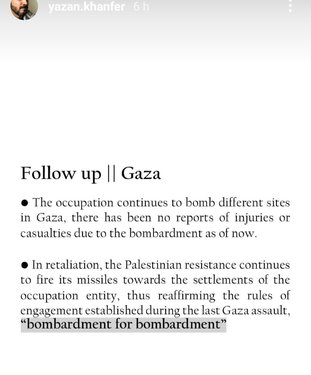
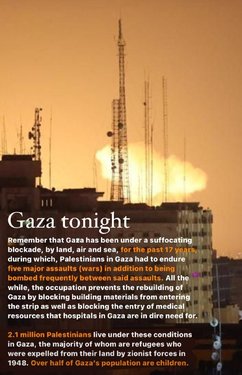

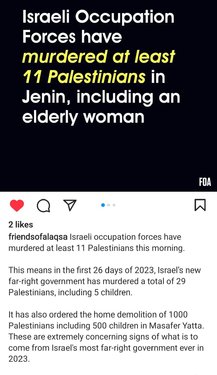


.thumb.jpg.0019668b0d664108b26a645e9ae9ce97.jpg)
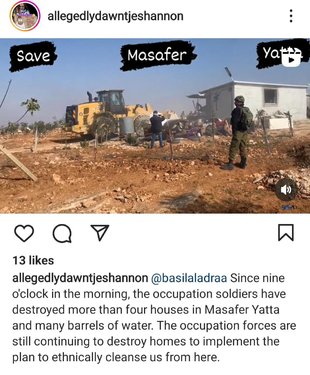

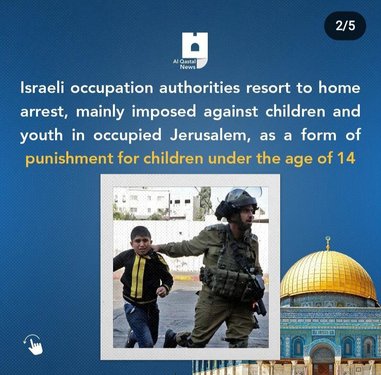
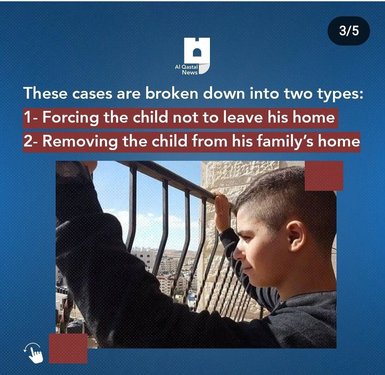
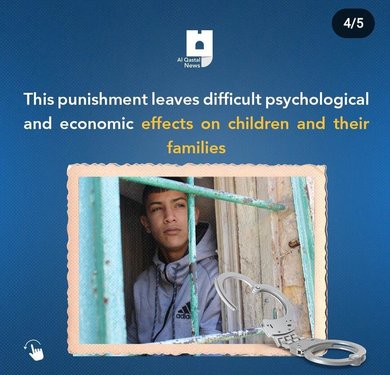
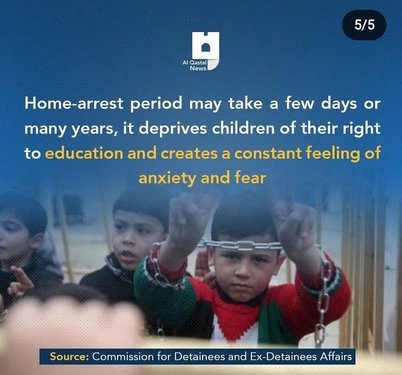
.thumb.jpg.c9b40a7a8e27ba95f814ecb48c23e8ad.jpg)
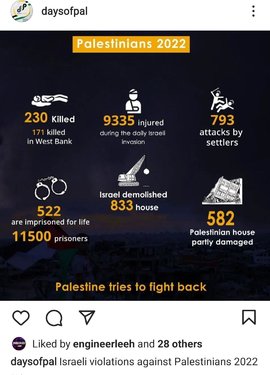
.thumb.jpg.e9138f031d52482a27a30889c955a142.jpg)
.thumb.jpg.9246ba620f15e54cc21fe37b7d9bfa81.jpg)
.thumb.jpg.59d35199fc7c8df01a41693971a8ad17.jpg)
.thumb.jpg.26d62848db0ae748620d09ffd3158a57.jpg)
.thumb.jpg.feac3052ca4fc73b65cdeeeeaeabab94.jpg)
